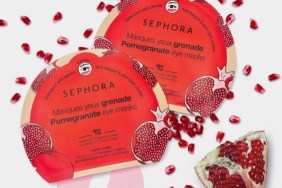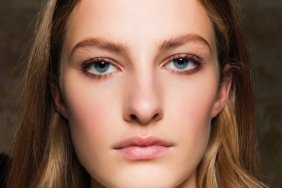Whether you’ve got scar-prone skin that documents every zit, blackhead, bug bite and scratch in the form of hyperpigmentation or you made the fatal mistake of forgoing sunscreen in your 20s, allow us to introduce you to arbutin.
For a time, the go-to ingredient for skin lightening, and the one many dermatologists swore by, was hydroquinone. However, controversies surrounding its safety (it can’t be used on darker skin tones; it’s been known to cause ochronosis; it’s been declared a carcinogenic by the FDA; it’s currently banned in Europe, Australia and Japan) have sent specialists in search of alternative ingredients. Enter arbutin, the dermatological world’s new skin-brightening wunderkind.
Like licorice root, mulberry, soy extracts, kojic acid, azelaic acid, vitamin C and niacinamide, arbutin is a plant-derived dark-spot-fading ingredient. Per the Paula’s Choice ingredient directory: “Arbutin may be made synthetically or derived from bearberry plant or other plants and exhibits antioxidant activity. Most notably, arbutin has an increasing amount of research attesting to its effectiveness for brightening an uneven skin tone.”
Scientifically speaking, the aforementioned botanical skin brighteners work in much the same way. “[Arbutin] interferes with activity of an enzyme called tyrosinase, which is needed to produce melanin or pigment in the skin,” Dr. Joshua Zeichner, the director of cosmetic and clinical research in dermatology at Mount Sinai Hospital, told Fashionista. “Arbutin is commonly paired with other skin brighteners like kojic acid, vitamin C or niacinamide. They all work on the same pathway leading to pigmentation and have a greater effect when paired together.”
What sets arbutin apart from the pack? For one, it’s gentler. For another, it’s very similar to hydroquinone in molecular makeup but without the same health risks. Again, per Paula’s Choice, arbutin “can be considered an alternative to hydroquinone for those whose skin may be unable to tolerate this lightening ingredient in much the same way that some people’s skin can tolerate cosmetic retinol but not retinoids from the pharmacy.”
“Since arbutin’s active component is released slowly, it can be less irritating than other skin-lightening agents and better for those with sensitive skin,” Dr. Michael Lin, a dermatologist with his own line of arbutin-infused skin-brightening products, explained to Byrdie.
Of course, as with all topical treatments, everyone’s skin reacts differently and if arbutin-containing products cause you redness, burning or stinging — which they may — consult your dermatologist (who will likely advise you to lower your usage to every other day). Also, while attempting to even out your skin tone or fade dark spots, be extra-vigilant about sunscreen use. “UV light stimulates pigment production, and even small exposures can undo the benefits you may have gotten from the brightening cream,” added Zeichner.
Finally, don’t expect to take a magic pill, go to sleep and wake up with creamy, hyperpigmentation-free skin. It’s actually one of the more difficult skin issues to correct and requires time, patience (some don’t see results for up to six months) and consistency.
Eager to embark on your complexion-correcting journey? Below, a selection of top-rated skin-brightening products, all containing the ingredient of the hour.
[ Next: 10 Best Dark Spot Correctors to Even Out Your Skin Tone ]
Arbutin Products
-
Skinceuticals

Phyto Plus, $86 at Blue Mercury
-
Michael Todd Beauty

KNU Serum Anti-Aging Face Lift, $85 at Ulta Beauty
-
Sunday Riley

Tidal Brightening Enzyme Water Cream, $65 at Sephora
-
First Aid Beauty

5 in 1 Eye Cream, $32 at Sephora
-
Skin Inc.

Pure Revival Peel, $55 at Sephora
-
Peter Thomas Roth

CC Cream Broad Spectrum SPF 30 Complexion Corrector, $48 at Ulta Beauty
-
Paula's Choice

Radiance Renewal Mask, $36 at Nordstrom
-
Arcona

Instant Magic Reversal Serum, $108 at Nordstrom
-
111Skin

Bio Cellulose Facial Treatment Mask, $160 at Nordstrom
-
Kat Burki

Complete B Illume Brightening Serum, $240 at Net-a-Porter








